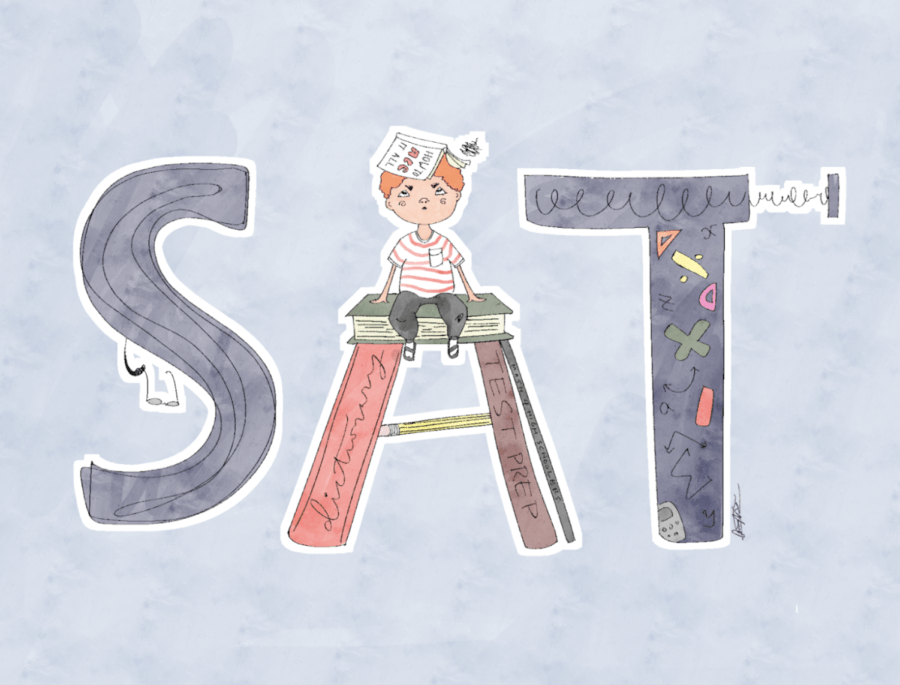The Struggle With Standardized Testing
(Artwork/Amy Lin ’26)
April 15, 2023
The college application process is often stressful for students. Unfortunately, standardized tests like the SAT and ACT, which are an integral part of admissions in the United States, only add to this burden. While standardized testing was required for admission to most universities in the country prior to the COVID-19 pandemic, in 2020, many colleges made the decision to make testing optional for applicants. In fact, over 1800 four-year colleges across the U.S. are test-optional for fall 2023 admissions. In making this decision, many colleges often cite inequities in the test-taking process, which were only exacerbated by the onset of the pandemic, and they are completely justified in their reasoning.
Standardized testing should be optional. As someone who has a brother currently going through the process, I think I can speak for a significant portion of high school students when I say that tests should be an optional factor in college admissions. Tests like the SAT and ACT, which are offered to over a million students every year and are often submitted by students to the colleges and universities they are applying to, are not an accurate marker of academic aptitude. Many share this sentiment; freshman Michael Xue shares, “The SAT only covers English and math, so I don’t feel like it’s a good measure for [what kind of student] you are overall.” A significant flaw of standardized testing is that it only represents your abilities in a span of a few hours on a single day. If someone was going through a rough moment in their life and was far too preoccupied to worry about the SAT or ACT, they won’t do as well as they normally would. Emotions are not reflected in the objectivity of test scores. Also, test anxiety is also something that many highschoolers struggle with, and may very well negatively impact a student’s chances of getting into their dream school.
Optional standardized testing allows high school students to pursue what they are passionate about instead of spending their time cooped up in their house studying. Instead, students can express themselves through other hobbies, allowing college admission officers to view them as individuals instead of numbers on a sheet. Additionally, not only is standardized testing time-consuming, but it is also costly; signing up for the SAT costs $60, and this number only multiplies each time you retake the test. Students who need supplemental tutoring should be prepared to spend far more than this, which is not only expensive, but also disadvantages those who do not have the money and the time to afford tutors. Colleges should be test-optional to ensure that the application process is fair and equitable. All students should have the same opportunities. Interests should be expressed qualitatively, through essays, interviews, and an activities list, and not through a single number, which has the ability to define an applicant’s entire academic profile.






